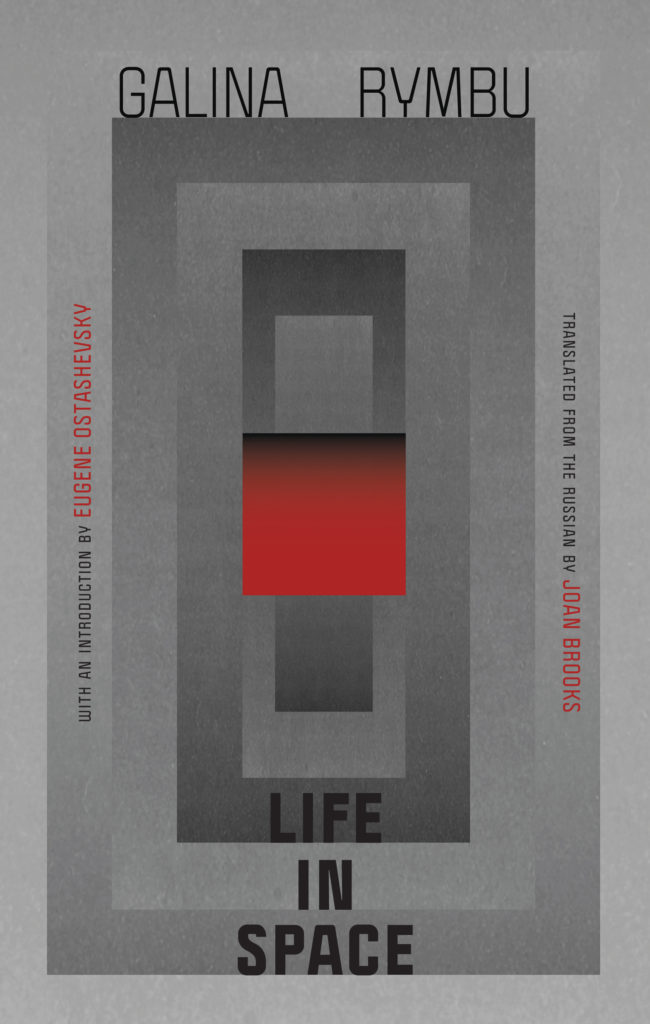Galina Rymbu brings the startling energy and innovative candor of a new generation to the revered Russian poetic tradition of cultural critique and social resistance. In a voice entirely her own but resonant with echoes of the art’s heroic figures from both the Soviet and post-Soviet periods, she explodes the nostrums and slogans that flood our lives. Fire is her element, and by its unforgiving light she probes the ashes of revolution, the ruined remnants of ‘68, the desert of theory, “the corpse of politics,” as well as the often hallucinatory complexity and contradictions of the quotidian. And where in all of this, her work asks, is the place of personhood and desire? The poems are relentlessly exploratory, challenging and engaging.
Michael Palmer
Galina Rymbu's poetic core is rock-hard. The untranslatable knot of post-Soviet violence and inequality—political, sexual, and economic—is loosened by her voice of supersensual empathy and restless analysis. Daring and surprising in every poem, Life in Space is the arrival of a new major poet.
Valzhyna Mort
Unflinchingly visceral, Rymbu’s writing is a guide through a personal history of collective struggle where “the body is a travelling puppet show of criticism, fury, horror.” Rendered in break-neck verse, Life in Space offers the raw, resistant intelligence of a mind bearing witness to the social conditions of its formation, and not without what I can’t help but read as a wink of dark humor. If ever you were looking for a work that reads like deep background on a Pussy Riot song, this is the book for you. The time is now, Rymbu suggests, to “hide a blade or a shiv in your mac book case/and move with clenched teeth through the dark fascist ranks.”
Liz Howard
Life in Space probes what it would mean to inhabit space and time collectively, as what we have in common. Its singular poetics is a materialist and speculative poetics of this kind of inhabitation — and the publication of this volume in English is a genuine event.
Los Angeles Review of Books
Praise for Previous Work
If Rymbu's poetry can be said to be about any place, it's the milieu, in Deleuzian terms: a space where all manner of rhythms, histories, and stories are intertwined. Her work thus does not serve as an escape from the world, but as a way into it: an attempt to unearth almost forgotten memories, old habits, and older structures, to address the rivers drying up and the life that is withering—all the empty factories and deserted digs of the collapsed Soviet empire and of the predatory capitalism of Russia today. Among these bleak and dystopian ruins, Rymbu goes in search of love and intimacy. [...] The Anthropocene is often described as a great acceleration, an era in which the long timespans of geology catch up with humanity’s brief spell and dethrone us as the center of our universe. What Rymbu’s work does is just a little different, as she tells the story overshadowed by that of the Anthropocene: she does not focus on humankind as conqueror, but on all those, not even just humans, who have been trampled and abandoned by the inexorable march of progress. Her poetry foregrounds unfamiliar rhythms that are slow, polyphonic, beyond the human; these very rhythms, Rymbu’s glorious poems suggest, can sensitize the reader to a life lived amidst the ruins of what we once called civilization.
Frank Keizer (tr. by Florian Duijsens), Poetry International
This is Big Poetry, very much grounded in tradition but also propelling it forward, into the terra incognita of the now. It’s been a while since I read a poem that felt so real.
Eugene Ostashevsky, Music & Literature
Words for [Rymbu] are a kind of food; in the Russian original, her carefully chosen phonemes create stanzas of rich, dense wordplay.
Sophie Pinkham, New York Review of Books
